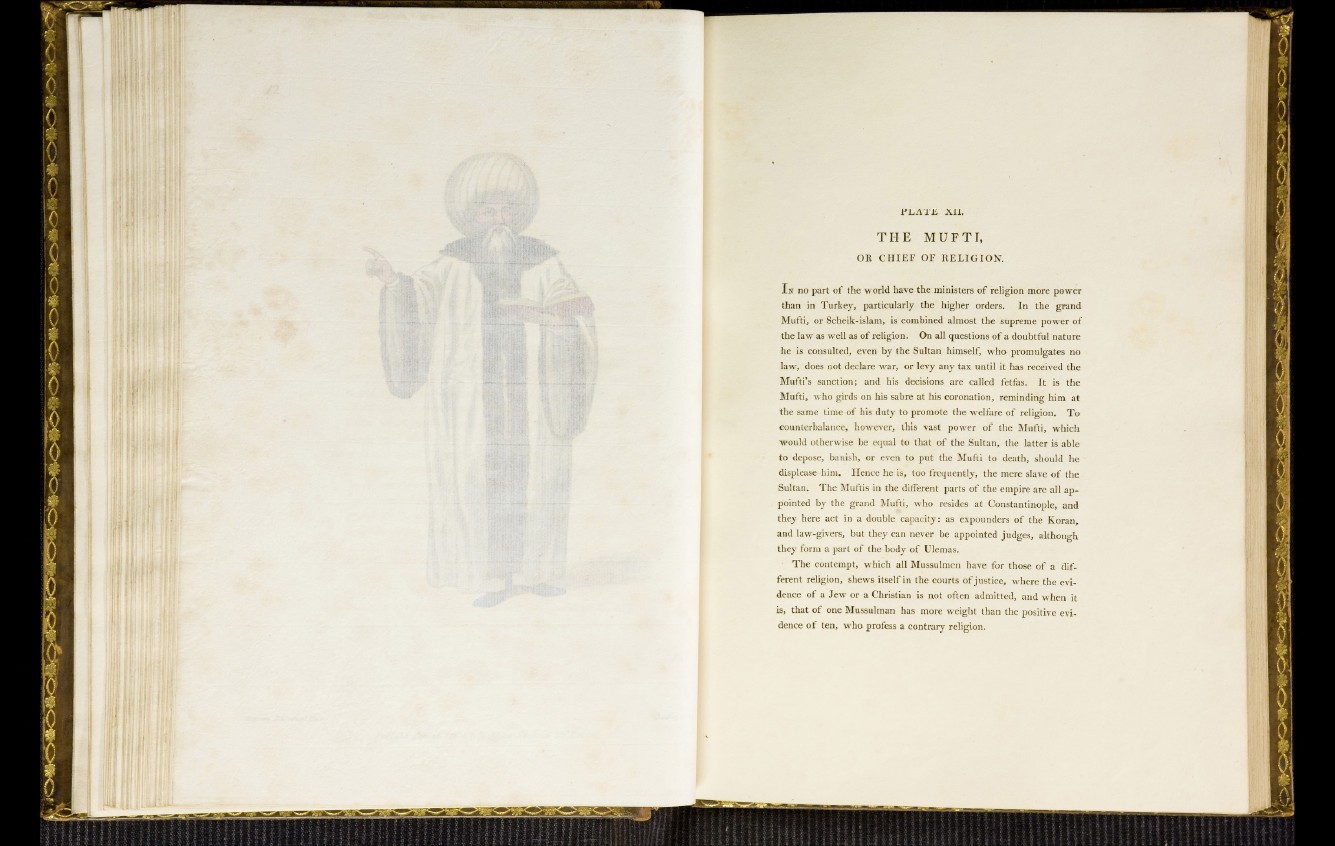
P L IT E XII.
T H E MU F T I ,
' OR C H IE F OF R E L IG IO N .
1» no part of the world havethe'mihisters of religion more power
than in' Turirey, particularly the higher orders. In., the grand
Mufti,- ofScheik-islam, is combined almost the supreme power of
the law as well as of religion,' On all questions of a doubtful nature
he is 'consulted', even by the Sultan himself, who promulgates no
law, does not declare war, or levy any tax- until it has received the
39$£sKj& sanction; and his decisions '$Har called feUrtfcr- I t i s ' the
Mufti,' who girds on his sabre at his coronation, remindiSg him at.
tle'same time of his duty to promote the welfare o f religion. To
counterbalance, however, this vast power of> the Mufti," which
Would otherwise he equal to that of the Sultan, the latter is able
to ‘depose, banish;-or’ even to put? the Mufti to death, should he
displease »him. Hence he'is, too frequently,-the mere slave of-the
.Sultan. ’ The Muftis in the different parts of the empire are all ap-‘
pointed by the grand Mufti, ■ # h o resides at Constantinople, and
they here act in a double capacity: as expounders of the Koran,
and law-givers, but they can never be appointed' judges, although
they form a part of the body
1 The contempt, which all Mussulmen have for those of ^ different
'rtligioh/ shews^itself in the courts of justice, where''the evidence
of a Jew or a Christian is not often admitted, and when if
is, that of one Mussulman has more weight than the poative evfc
dence o f ten, who- profess a contrary religion.